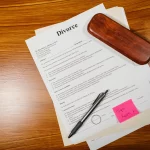When it comes to criminal law cases, the truth is not just a moral obligation but a legal imperative. The gravity of lying in such situations cannot be overstated. In the realm of criminal justice, every word and statement holds significant weight, and any deviation from the truth can have far-reaching implications. We at Strategic Lawyers witness firsthand the repercussions that dishonesty can bring in criminal proceedings.
This blog is crafted with the dual aim of educating and guiding our readers. While the primary focus is on enlightening about the legal consequences of lying in criminal proceedings, it also serves to underline the importance of integrity in the justice system. We seek to offer a clear, comprehensive understanding of how dishonesty can not only derail individual cases but also undermine the very foundations of justice. Through this, we hope to foster a deeper respect for the truth within the legal framework, especially among businesses and individuals navigating the complexities of criminal law.
Understanding Perjury and False Statements
Perjury, a term often heard but sometimes misunderstood, refers to the act of lying or making materially false statements while under oath in a legal proceeding. In the context of Australian law, particularly in Queensland, perjury is not a matter taken lightly. The legal system views it as a severe breach of trust and a direct attack on the judicial process’s integrity.
Making false statements, a closely related concept involves providing untruthful information in a legal setting, not necessarily under oath. This can occur during police interviews, in affidavits, or in any formal legal documentation where the expectation is for truthful disclosure. Both perjury and false statements can significantly alter the course of justice, leading to wrongful convictions or the acquittal of the guilty.
Legal Repercussions of Lying in Court
Criminal Penalties
Lying in court, an act that directly challenges the judicial system’s authority, carries with it significant criminal penalties. In Queensland, as in other parts of Australia, the consequences are particularly stringent. Perjury, for instance, can lead to imprisonment. The term of imprisonment can vary, reflecting the gravity of the lie and its impact on the case. Fines are also a common penalty, serving as a monetary deterrent against dishonesty.
Effect on Case Outcomes
Dishonesty in court doesn’t just affect the individual who lies; it can drastically alter the outcome of the case. For instance, a lie under oath can lead to a wrongful conviction or acquittal, denying justice to the rightful parties. In civil cases, false statements can skew the judgement, leading to unfair settlements or judgments. The ripple effect of such outcomes can be far-reaching, affecting not just the immediate parties involved but also setting precedents for future cases.
Long-Term Consequences
The repercussions of lying in court extend beyond the immediate legal penalties. A record of dishonesty can have lasting effects on an individual’s personal and professional life. It can tarnish reputations, lead to loss of employment opportunities, and result in social ostracism. Moreover, a history of dishonesty can influence future legal proceedings, with courts possibly viewing statements from the individual with scepticism.
Ethical and Societal Impact
Moral Considerations
The act of lying in a legal setting raises significant ethical concerns. It challenges the moral fabric of society, questioning the values of truth and integrity that underpin our legal system. The ethical implications extend to all stakeholders in the justice system, including legal professionals, defendants, plaintiffs, and witnesses. Upholding honesty is not just a legal obligation but a moral duty that supports the principles of justice and fairness.
Public Trust in the Judicial System
Public trust in the judicial system is foundational to its effectiveness. When lies permeate legal proceedings, it erodes this trust, casting doubt on the system’s ability to deliver fair and just outcomes. The societal impact of diminished trust in the legal system can be profound, leading to a lack of faith in public institutions and a weakening of the social contract that binds citizens to the rule of law.
The Role of Legal Professionals
Promoting Honesty
As legal professionals, our role transcends mere representation in court. At Strategic Lawyers, we consider it our duty to advise and guide our clients towards honesty and transparency in all legal matters. This responsibility is pivotal, especially in criminal law cases, where the stakes are high, and the truth is paramount. We strive to ensure our clients understand the gravity of dishonesty and its potential ramifications, both legally and morally.
Maintaining Integrity in Legal Proceedings
The integrity of legal proceedings is the bedrock upon which justice is built. Lawyers, judges, and all legal practitioners play a critical role in upholding this integrity. At Strategic Lawyers, we are acutely aware of our role in this ecosystem. Maintaining integrity isn’t just about adhering to the law; it’s about fostering a culture of trust and reliability in the legal process. This involves diligent, honest representation, thorough fact-checking, and a commitment to ethical practices at every turn.
Reflecting on Truth: The Keystone of Justice
This blog has journeyed through the multifaceted implications of lying in criminal law cases. We delved into the legal definitions and real-world examples of perjury and false statements, unpacked the severe legal repercussions, and explored the ethical and societal impacts of dishonesty. The overarching message is clear: truthfulness is not merely a legal requirement but a foundational element of justice.
Encouraging Legal Integrity
The emphasis on honesty in legal matters cannot be overstated. At Strategic Lawyers Townsville,we advocate for integrity and transparency in all legal proceedings. We encourage individuals and businesses alike to recognise and uphold the value of truth. In doing so, we not only safeguard individual rights but also contribute to a more just and trustworthy legal system.






